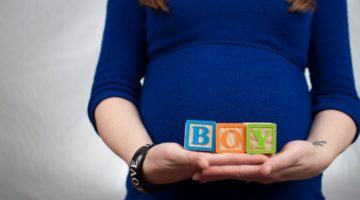5 Reasons – Why you should not drink coffee (caffeine) during Pregnancy?
Pregnancy is a critical period in a woman’s life that requires extra care and attention to ensure the health and well-being of both the mother and the developing baby. In this article, we will explore 5 Reasons- Why pregnant women should not drink coffee (caffeine) during Pregnancy. Expectant mothers often face various restrictions to safeguard their unborn child’s growth and development. One of the most debated topics during pregnancy is the consumption of caffeine, primarily found in coffee. While coffee is a popular beverage loved by many, its potential effects on pregnancy cannot be overlooked.
From potential risks to the developing fetus to potential health implications for the mother, understanding these reasons can help expectant mothers make informed decisions about their dietary choices.
5 Reasons – Why you should not drink coffee (caffeine) during Pregnancy?
1. Fetal Development and Caffeine
During pregnancy, the developing fetus is highly sensitive to external factors. Studies have found that caffeine can pass through the placental barrier, which can expose the unborn baby to its effects. Since the liver of a developing fetus is not fully functional, it lacks the necessary enzymes to metabolize caffeine efficiently. This means that caffeine can accumulate in the baby’s bloodstream, which can potentially lead to adverse effects.
Consuming too much caffeine during pregnancy can lead to a greater chance of miscarriage and stillbirth. Research indicates that having over 200-300 milligrams of caffeine daily, which is about one to two cups of coffee, may increase the risk of losing the baby. Additionally, caffeine can impact the development of the baby’s nervous system and brain. Consuming high amounts of caffeine while pregnant has been linked to an increased likelihood of developmental delays and behavioral problems in children later on.
2. Impact on Sleep Patterns
Pregnancy is often accompanied by hormonal changes, discomfort, and increased stress levels, all of which can affect sleep patterns. Caffeine is a well-known stimulant that can disrupt sleep by inhibiting the action of adenosine, a neurotransmitter responsible for promoting sleep and relaxation.
Sleep disturbances during pregnancy are common, but caffeine consumption can exacerbate the problem. Poor sleep quality and inadequate rest can negatively impact the mother’s health, leading to increased stress and fatigue. Chronic sleep deprivation during pregnancy has been linked to various complications such as gestational diabetes, high blood pressure, and preterm birth.
You can also check-Is It Safe To Use A Heating Pad During Pregnancy?
3. Increased Heart Rate and Blood Pressure
Caffeine consumption elevates heart rate and blood pressure in both pregnant and non-pregnant individuals. During pregnancy, the circulatory system changes to accommodate the growing baby, making the mother more susceptible to fluctuations in blood pressure.
High blood pressure during pregnancy can lead to serious complications such as preeclampsia, a condition characterized by elevated blood pressure and damage to organs like the liver and kidneys. Preeclampsia can restrict the baby’s growth, leading to premature birth or low birth weight. Furthermore, caffeine is a diuretic, meaning it can increase urine production. This may result in dehydration, which is especially concerning during pregnancy, as proper hydration is crucial for both maternal and fetal health.
4. Calcium Absorption and Bone Health
Caffeine has been found to interfere with calcium absorption in the body. During pregnancy, the demand for calcium is significantly higher to support the development of the baby’s bones and teeth. Consuming caffeine may hinder the absorption of this vital mineral, potentially affecting the baby’s bone health.
Pregnant women who consume large amounts of caffeine may have lower calcium levels, increasing their risk of osteoporosis and fractures later in life. Moreover, the baby may not receive the optimal amount of calcium required for proper skeletal development, potentially leading to long-term health issues.
Related-Why Only Few Women Experience Nosebleeds During Pregnancy?
5. Risk of Preterm Birth and Low Birth Weight
Preterm birth (delivery before 37 weeks of gestation) and low birth weight (weighing less than 2,500 grams at birth) are significant concerns during pregnancy. Studies have suggested a possible association between high caffeine intake and an increased risk of both preterm birth and low birth weight.
Caffeine’s stimulant properties can cause uterine contractions, which may trigger preterm labor in some cases. Additionally, caffeine can constrict blood vessels, reducing blood flow to the placenta and potentially affecting the baby’s growth and development.
In conclusion, while coffee is a beloved beverage for many, pregnant women should seriously consider avoiding its consumption due to the potential risks associated with caffeine during pregnancy. The developing fetus is particularly vulnerable to the effects of caffeine, and excessive consumption may lead to adverse outcomes such as miscarriage, developmental delays, and low birth weight.
Choosing to forgo coffee and other sources of caffeine during pregnancy can contribute to a healthier and safer pregnancy journey. Expectant mothers must prioritize their health and the well-being of their unborn child, making informed decisions about their dietary choices.
Instead of relying on caffeine for energy or relaxation during pregnancy, women can explore safer alternatives, such as decaffeinated beverages, and herbal teas, or adopt healthy lifestyle practices like regular exercise and sufficient rest. As always, pregnant women need to consult with their healthcare provider for personalized advice and guidance throughout their pregnancy journey.
Frequently Asked Questions-
Is it safe to consume any amount of caffeine during pregnancy?
No, it is not entirely safe to consume any amount of caffeine during pregnancy. Although consuming moderate amounts of caffeine may not have significant risks, excessive consumption can potentially cause adverse effects on both the mother and the developing baby. Pregnant women should limit their caffeine intake or avoid it altogether to reduce the risk of potential complications.
How does caffeine affect the developing baby during pregnancy?
During pregnancy, caffeine can pass through the placenta and affect the developing baby. As the fetus is very sensitive to external factors, consuming too much caffeine during pregnancy can lead to restricted fetal growth, low birth weight, and an increased risk of preterm birth. Additionally, studies have shown that maternal caffeine intake may be linked to congenital anomalies and developmental delays in newborns.
Can caffeine consumption lead to an increased risk of miscarriage?
It has been discovered through research that consuming caffeine during pregnancy could potentially increase the risk of miscarriage. Pregnant individuals who consume more than 200 milligrams of caffeine per day (equal to roughly one 12-ounce cup of coffee) have a greater likelihood of experiencing a miscarriage compared to those who do not consume caffeine. To reduce this risk, it is advised for pregnant individuals to limit their caffeine intake while pregnant.
How does caffeine affect sleep patterns during pregnancy?
If you’re pregnant and having trouble sleeping, there are some things to keep in mind. One is to watch your caffeine intake as it can make sleeping problems worse. Hormonal changes, physical discomfort, and anxiety are all common causes of sleep disturbances during pregnancy, so it’s important to deal with them too. Not getting enough rest can have negative effects on both the mother’s health and the baby’s neurological development, so it’s crucial to make sleep a priority.
Does caffeine consumption during pregnancy increase the risk of gestational diabetes?
Emerging evidence suggests a potential association between caffeine consumption and an increased risk of gestational diabetes. Research has shown that pregnant women who consume excessive amounts of caffeine may be at a greater risk of developing gestational diabetes. Gestational diabetes poses risks to both the mother and the baby, making it essential for pregnant women to be cautious about their caffeine intake to minimize potential health risks for themselves and their unborn children.










